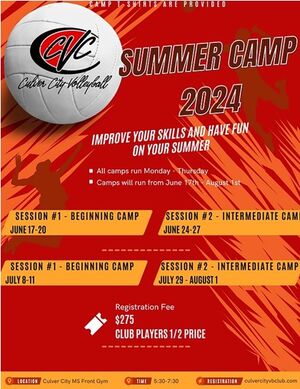Kristopher Belman - Exclusive 1:1 Interview
September 22, 2009
Akron, Ohio native turned long time Culver City resident, Kristopher Belman is a filmmaker with ethics, integrity, humility and talent. Always wanting to make movies, Kris had long been interested in a story that began in Akron, Ohio. A story involving legendary high school basketball coach, Dru Joyce, and some young, once unknown basketball players named Sian Cotton, Dru Joyce III, Willie McGee, Romeo Travis and a guy named LeBron. As little kids, Sian, Little Dru, Willie and LeBron played basketball in a local gym. They were good. They were darn good. Early on they decided they wanted to play ball, together and win; win championships and be the best that they could be. As early as junior high they determined that they wanted to go to high school together, a high school with a great basketball program, a high school inner city kids from Akron wouldn't be attending. But attend they did. Winning, but missing that elusive championship title, eventually Romeo Travis joined this impenetrable fortress of friendship turning the Fab Four into the Fab Five under the watchful eye of Coach Dru Joyce, making their story the stuff that dreams are made of.
As for Kris Belman, he too, is a man with his own dream. A dream to tell stories and make films. Transplanted to Southern California from Akron, when it came time for making a film in his Introduction to Documentary Filmmking class he knew the story he wanted to tell. Little did he know when he started with this little 10 minute student project, it would turn into a 7 1/2 year journey that would change his life forever and help make his greatest dream come true.
I had a chance to talk with Kris about making MORE THAN A GAME. Here's what he had to say.
KB: Hey Debbie, how are you?
DLE: Hey Kris, I'm fine. How are you?
KB: I'm doing well. It's good to talk to someone the Culver City area. That's where I reside. So that's exciting.
DLE: Ah hah! That's good to know because then I get put this feature on you in the Culver City Observer.
KB: That's great! I'm a big fan of the City. It's amazing how much it's has grown over the past couple of years.
DLE: About this film. I absolutely love this film.
KB: Thank you very much. I appreciate that.
DLE: I'm a big sports nut anyway coming from Philly. But this film! How did you start this journey with this film? You've got so much archival footage and then you also have footage that looks like you were there filming, which I don't think you were.
KB: I was there in the latter part of their high school career. I was out here in Los Angeles going to Loyola, Marymount but I went back to my hometown of Akron to put together a ten minute film for one of my classes I was taking. It was an Introduction to Documentary class. It was important to me to do something for my hometown because I had just moved out here and all of my classmates gave me a hard time for being an Ohio guy. So I set out to do something Akron-based. I was really drawn to this article that I read about those boys. An article from their freshman year mentioned that four of them decided to go to high school together. And I just though that's such a unique kind of decision to make for someone that's so young. A couple kids were thirteen years old. high school is a time when a lot of people actually wind up splitting up friendship-wise. I knew that this particular high school wouldn't have been an easy or obvious choice for them, some of them being inner-city kids. To me, that had the marking of something interesting and I decided to kind of pursue it.
DLE: How difficult was it for you working on the film to go back and get cooperation from the school, the Coach and actually get the guys to participate?
KB: It was a journey. There were many levels of difficulty. At first it was just hard to get in front of them because the Coach didn't want a distraction along for the ride. They were trying to do something special and they didn't necessarily want me in their head set. But it was just hard to get in touch with them. As soon as I got in front of Coach Dru and I explained to him that I'm from Akron and this is a student project but most importantly, this isn't about LeBron [James]. This is about these friends. This is a friendship kind of tale. That made him take a chance on me. They told me I could come to practice one day. I was told to come to practice one day and "get everything you need". I came to practice that first day and I was like, "Wow! These friendships are really unique. I have to come back." So I decided to come back the next day and see if they said anything. And nobody said anything so I came back the day after that and it ended up being literally the next 7 1/2 years of my life. I just kept coming around with this camera. Even after they were graduated, I was still popping in. It was great though because all along I was earning that trust and respect from those guys. They realized that even years after LeBron was in the NBA, I was still chasing this story that I told them I was going to do 5, 6 or 7 years earlier. That made them open up to me and let me into their family lives and their lives. They would sit down and do interviews. I did interviews throughout the whole process but most of the ones used in the film were done 6 1/2 years after I started. At that point, the trust and respect was there, where I could go places with them and have them take me to places in their life, through their journey, that they probably wouldn't go through with me maybe 2 years in the project. It was done over time.
DLE: In the current interviews that you do have with them, you can see their faces. There's a lot of emotion but there's also a great comfort level that you see in each one of the guys as they are giving these interviews. Very casual and at ease.
KB: Yeah and at that point I've got a crew with me. The first 5 1/2 years it was just me and a camera and some credit cards. They weren't used to any crew. Once I was finally able to get some financing to do some reshoots, that posed a different challenge. Now they walk in and there's a crew there with lights and they're like, "Whoa! This is a different situation. This project's for sure, Kris." They weren't sure how to react and I was wondering if they were still going to be able to give me what we needed emotionally in front of other people. But, I think that just goes to show how important the journey was and how much they trusted and respected what we went through together throughout that 6 1/2 years. They were able to ignore the people around me and we could just sit there and connect. That was important and I appreciate that kind of trust and support I got from them.
DLE: Do you think a lot of that trust comes from the fact that along the road you weren't'tt trying to pit one against the other and gain favoritism. I've seen that happen with other filmmakers and situations where they get this idea, but at the heart, they are more interested in the celebrity they're gaining themselves as opposed to the story.
KB: I think it does. I think it really does, especially because there was a two year period after I graduated from college and these guys were already in college and LeBron is doing his NBA thing. In the two year period where I really hit some low points when I realized I needed funding to finish this thing the right way and the way it deserved to be told and I also needed to get back in front of LeBron to do his reshoots. At that point getting in front of LeBron is a much different situation than it was when I was with them in high school. I hit some serious low points but those guys. . . 5 1/2 years in, I'm still trying to tell this story and they realized that I never sold the footage that I have of LeBron. I was offered serious amounts of money to sell the footage outright. They knew that I was still chasing this story that was really important to me to tell. They appreciated that and they respected me for that. It was actually the boys that got me back in front of LeBron. Romeo [Travis] drove me over to LeBron' house one night. We kind of surprised him. I sat down and showed him a 12 minute edited kind of extended trailer of what this film could be if they all jumped on board the right way. That got LeBron 't out to exploit LeBron's story or the fame aspect of it, I think that definitely struck a chord with them. It's a bigger reason the film turned out the way it did.
DLE: How did LeBron become involved as Executive Producer?
KB: Honestly, after that night when I showed him the trailer, the 12 minute piece, and he said, "We need to get this done", it just struck such an emotional core with him. He really felt like this could inspire a lot of people and he wanted to help out as much as possible. So [LeBron being executive producer] was more of a support thing than anything. He wasn't involved financially or anything like that. But he was very involved in the support system. If I wanted to go back to Akron and do some re-shoots in High Definition and get on the roof of the YMCA to shoot he skyline or do different things, sometimes it's hard for filmmakers to get permits and do those kind of things. But when you've got LeBron James on your job as an Executive Producer, it's much easier to do things like that. It was mostly him supporting me and the vision. That's what was important to him at that point.
DLE: That's one thing I find very amazing about your filming with these guys. People see the bad boy image, especially with LeBron, and here you show a side of them that really captures a true camaraderie through friendships, the real heart and essence of what makes these boys who they are.
KB: That was important to me. As a filmmaker your stories are driven by your subtext and the things that are below the surface. The basketball was kind of the easy story. If this had just been a LeBron James story then the basketball wouldn't be any more important but it was important for me to use basketball to show them failing [to win the championship] junior year. And then to show them overcoming stereotypes and things like that, it is about basketball but in a lot of ways it's not and that's how I wanted it to be. I wanted it to go below the level. Even if you're looking at basketball footage, it's reflecting something else. It's metaphoric. When Romeo fouls out junior high during that Roger Bacon game, that has nothing to do with that basketball game. He's not a part of that team on that court because he was not a part of the team off the court. You know what I mean? It's using the sport as metaphor and that was very important to me.
DLE: You really bring that forward because there's so much that is conveyed. When something bad happens to one, they all feel it. When something good happens. . .when Dru Joyce is out there and makes those 6 baskets, 7 baskets in a row, you can feel, sitting in the theatre, you can feel the rejoicing and the mutual celebration that you have on that screen.
KB: Absolutely. That's a really great thing. We just got back from Europe where we premiered the film in London and in Paris. In London it was incredible because basketball is hardly recognized and known in London. A lot of people didn't know who LeBron was. But we had the screening there and there were people, during that scene you just mentioned, standing up literally out of their seats and cheering when Little Dru is hitting all these threes. It had nothing to do with sport at that point. It was bout the overall theme of overcoming doubters and adversity. I love screening the film with people that aren't sports fans or that don't know anything about the game itself because they still connect with these characters the way sports fans do. That's because of the subtext. I appreciate you saying it as it's definitely something that was very, very important to me because I really wanted the film to stand out and be able to inspire people.
DLE: Watching that scene in particular, but there are several others, and as I am sitting there, I got goosebumps watching it. Even now, just talking with you about that one sequence, I have goosebumps on my arms because your imagery is that powerful.
KB: I appreciate that. Thank you very much. I'm very glad it did. That's one of my favorite parts, too.
DLE: Going hand in hand with that, what really stands out to me - and in all the years I worked in the industry and then working as a film critic now for 12 years - is something I've never talked about, and that's the actual sound editing. Your sound editing here is spectacular. And particularly in that 7 basket sequence with Little Dru. You really selected music and then the oomph punches that you got with every basket, that you then have escalating with each tone, with each basket, the sound is more intense.
KB: Oh wow! You are the first person to mention the sound and that actually means a lot. When I first said I want to take this film to theatres, this is something I thought I could strive for in a way. It was important to me to make ti stand out from other documentaries in a lot of ways and one of that was sound. I had the privilege of being there for so many unbelievable on the court experiences. When you're in the stadium you hear the squeaks and you hear the crowd and all those things. I wanted to replicate that because while this is a documentary, I wanted it to appeal to non-documentary fans as well so that the message could spread. So, it was important for me for ti to be a theatrical experience. We were able to do the sound mix over at Universal Studios and the sound supervisor was actually from Akron, Ohio, so he was really supportive of the story. We had an incredible sound team and we spent a lot of time making sure that the squeaks and all those things were isolated and they were in the back of the theatre or the front, the cries of the crowd, you know really trying to wow the audience and make them feel all the court stuff. I really appreciate you mentioning that because that was very, very important to us for the filmmaking team
DLE: It really furthers the film and that's one of the things that helps take it beyond being a sports movie and makes it a movie.
KB: I appreciate that. That was very important to me. I'm really glad you said that.
DLE: Who was your sound supervisor at Universal?
KB: Scott Hecker who is from Akron. That was definitely a huge part of it. He was following those stories from LA while it was happening so he was really excited about jumping on board.
DLE: What year did you actually start this? What year were you in college when you got this great idea?
KB: I was a junior. It was 2002.
DLE: When did you ultimately finish?
KB: Started in 2002 and finished in late 2008.
DLE: And you've already got a deal putting it in theatres. That's not bad.
KB: Honestly, we premiered last year at the Toronto Film Festival and that was a life changing moment. That was the first public screening and it was the first screening that LeBron and all those guys were there. I can honestly say it was the most nerve-wracking two hours or hour 45 of my life. It's a 1200 seat theatre and it sold out. I'm sitting next to Willie [McGee] and Coach Drue and Lebron and Little Dru and all the others. I didn't know if the general audience is going to like it. I don't if these guys who let me into their lives were going to like it. It was an unbelievable nerve-wracking experience. But when the film was done, all five guys are standing there, hugging each other and crying, and you could tell that it really struck a moment with them. And that was very validating to me from a personal level. From a filmmaking level, the audience responded really well. We ended up taking second place to "Slumdog Millionaire" which, of course, went on to do so many great things. Toronto was just so life changing. It really reaffirmed the whole journey.
DLE: Taking second to Danny Boyle is nothing to sneeze at.
KB: He's one of my favorite filmmakers and I was so shocked that it happened. I was asking, "Who won?" and then they mentioned and I was like, "That's the greatest thing." That's probably better than a win for me. Just seeing my name next to Danny Boyle's in some articles. Danny is incredible. I was very, very appreciative of that.
DLE: I love Danny. I've known him for quite a few years. With "Slumdog" and all his other successes, he's very humble, just like you also are very humble. You are dealing with some of the biggest talents in the sports world, the most recognizable people, and you come across with this great humility and sense of pride that is so refreshing.
KB: I was part of a really special journey. These guys really let me be a part of something unique and inspiring. I'm inspired by being a part of it. I feel very fortunate to have been part of their journey. It was just unbelievable. I've made lifelong friends in a community. Those families all took me in, in a way, and I know we'll always stay close. I'm very appreciative.
DLE: How supportive were the families in giving you the archival footage from the boys' younger days and some of the home movies and whatnot?
KB: They were really supportive. I think that was earned over time. Five years in, I'm still at it and I'm still trying to go after that same story I set out to do. They respected that. So when I asked for things, they worked so hard for me in a lot of ways. They searched their basements, they looked through scrapbooks, they really tried to find everything we asked for. It was unbelievable. I had a box sent to me from Romeo and I open it up and inside there would be his original baby footprints from the hospital. Not copies, but originals. They really took me in and embraced that, sending me everything. It was unbelievable the amount of trust they gave me. Especially considering some of these people, as the film shows, they are inner city and trust doesn't necessarily come naturally to them because of the things they go through. For them to take an outsider like me in to that kind of home environment and trust me with those things, it was unbelievable. It's why I felt an overwhelming sense of obligation and appreciation to make sure the film demonstrated that trust and gave the story justice.
DLE: How many hours of film did you end up with?
KB: 700 hours of footage overall.
DLE: Kris, what is it that you want the audience to take from this film?
KB: I would really like the audience to learn a lesson about dreams. Those boys had a dream and Coach Dru had a dream. I feel that going after dreams is one of the hardest things you can do in life. A lot of people are afraid to chase their own dreams, so they make you feel bad about chasing yours. They tell you it's not smart or it's not the logistical thing to do. And those boys' dream was pretty incredible - try and win a national basketball championship from Akron, Ohio. Ohio is a football state. It's a lofty goal. Yet, they used each other and the friendship they had to ignore the naysayers and to go after it anyway even though it took nine years. And then there's Coach Dru who didn't even start chasing his dream until his mid-40's. Because of those boys he decided he could still go after his dream. I feel like it is a basketball film and it is a sports story, but at the same time it's really more of a story about dreams and surrogate family. I feel if you can surround yourself with people who are positive and if you can believe in yourself and what you're chasing, then you should always go after your dream no matter what it is. If it's not basketball, if it's being an artist, being a lawyer. For me, I thought my story paralleled those in a lot of ways because I wanted to be a filmmaker more than anything. I wanted to tell stories. And here I am 7 1/2 years later. I was able to achieve my dream with those guys as they achieved theirs. Because they took a chance on me and because even when everyone was telling me it was too hard and that trying to tell the Coach Dru story was a waste of time and I would never get it off the ground, I called Willie or Sian [Cotton] and those guys would tell me, "Stay at it. You're doing it so far. It's gonna happen." We surround ourselves with the right positivity and here I am, I was really able to achieve my dream. I just feel like it's a film about dreams and I hope people can take that away from it.
DLE: Thank you so much, Kris. I think MORE THAN A GAME is one of the finest documentaries I've seen this year.
KB: Thank you. I really appreciate it. Nice talking to you.



















Reader Comments(0)